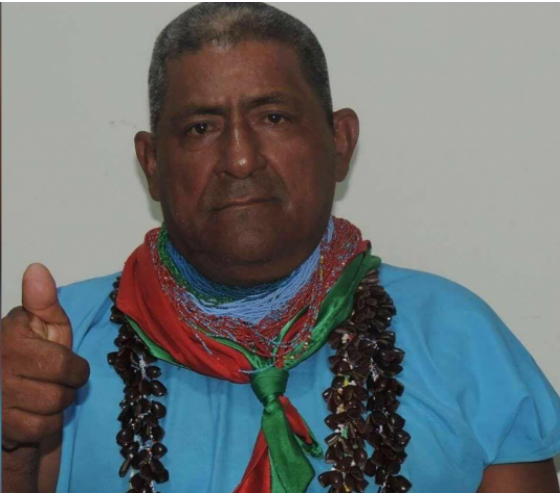On November 25, 2017, an Indigenous Inga leader from the Colombian Amazon was found dead in the department of Caquetá. His body showed signs of torture. He’d been missing for two days.
Mario Jacanamijoy was a well known leader for the rights of the Inga people and the protection of the environment. “Mario was a friend, a respected social leader and a prominent member of Tandachiridu Inganokuna, an organisation fighting for the rights of the Inga people and the rights of mother earth. Mario was also a spiritual follower of yagé-medicine and one of the founders of the Union of Indigenous Doctors of the Colombian Amazon,” shared his colleagues at UMIYAC in a statement on Twitter.
Since the signing of the Peace Accords in Colombia in 2016, Indigenous leaders, social activists, and human rights and environmental defenders have been massively targeted by threats and violence.
Colombia’s Human Rights Ombudsman counted 156 human rights defenders killed between January 2016 and March 2017, in an investigative report on the issue. In their report “Defenders of the Earth” from 2016, NGO Global Witness found that globally, nearly four people were murdered every week in 2016 protecting their land specifically from agribusiness, oil, mining, and logging. “They threaten you so you will shut up. I can’t shut up. I can’t stay silent faced with all that is happening to my people. We are fighting for our lands, for our water, for our lives,” said Jakeline Romero, Colombian land defender, to Global Witness.
